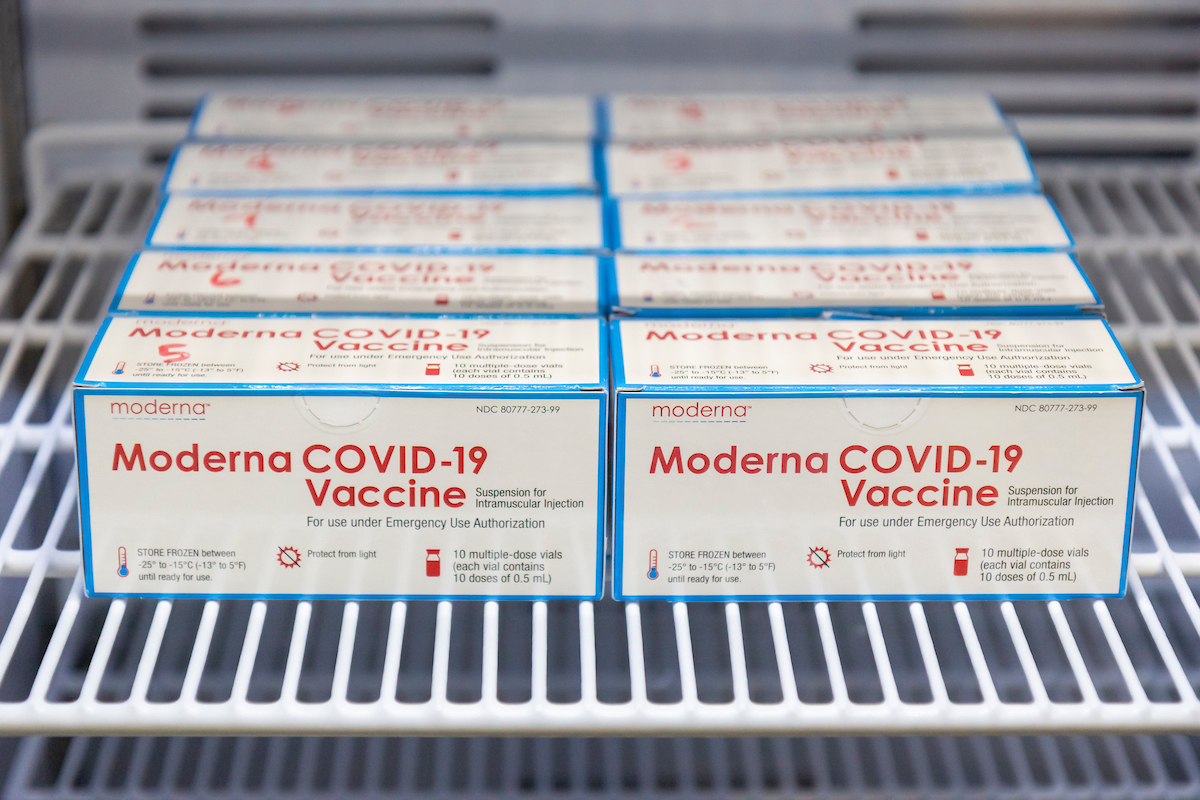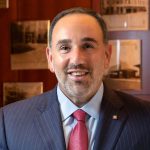<< Back
COVID-19, a Year Later: 6 Ways it Will Shape Our Future

March 09, 2021
By Jeffrey A. Flaks
President and Chief Executive Officer
Hartford HealthCare
 Jeffrey A. Flaks
Jeffrey A. Flaks
Recalling the arrival of Hartford HealthCare’s first COVID-19 patient one year ago brought forth a flood of memories and emotions. At 10 p.m. on Friday, March 13, 2020, my colleagues and I experienced a surreal combination of uncertainty and confidence, fear of the unknown balanced by reliance on our training.
On that night, no one could have imagined the enormity of the loss of life, the magnitude of how our world would change. But history is a great teacher — and each of us has lived through 12 long, emotionally challenging months. (For a timeline, click here. For a look at COVID numbers, click here.) We can take some lessons from this time.
Here are six:
Health Equity
Students could be forgiven for thinking that healthcare disparity is a new topic, one borne out of our nation’s overdue reckoning with racism. Actually, we have known about this crisis for many decades. It took a virus to shine a bright light on its impact and how healthcare systems must make meaningful and lasting improvements.
I am proud of our efforts so far at Hartford HealthCare, and have committed to additional action to address health equity head-on. We have held thousands of outreach clinics and set up mobile care sites to provide testing and vaccines. (Above, the vaccine clinic at The First Cathedral in Bloomfield.) We will expand these efforts, through and beyond COVID-19, with additional physical and emotional health supports — bringing care, hope and healing to those who have been too long ignored and those who need us most.
Innovation
Home was often the safest place to be during this pandemic. Senior citizens and people with severe medical conditions had no choice. Keeping these patients healthy at home spurred a burst of innovation: remote monitoring devices to keep track of activity and safety; virtual doctors’ appointments for primary, specialty and behavioral health care; even robots.
Hartford HealthCare’s Independence at Home program brought a voice-activated robot called “Cutii” into clients’ homes. It can provide everything from telemedicine to video-led exercises based on needs. Yes, such developments disrupt the traditional model of health care. They’re also effective and in demand.
Supplies
Until last March, most people outside of health care had never heard of an N-95 mask. Overnight, there was unprecedented demand for masks and other forms of personal protective equipment. Today, we’ve developed enhanced infection-prevention programs.
We have stockpiled warehouses with approved equipment and have created new pathways to secure supplies when demand rises. It has been a challenging undertaking, requiring Hartford HealthCare experts to source materials nonstop from around the globe. Never again should our great nation find itself short of supplies — without a national strategy to secure basic weapons against a viral enemy.
Information
Before there was a vaccine, there was already a powerful tool to keep people safe: timely, reliable information. Health experts took to every platform ― TV, newspapers, websites, social media posts, live-streamed events and webinars ― to deliver messages intended to inform a worried public.
Tens of thousands of people registered for and attended our many virtual seminars. Today, getting sound medical advice need not require a trip to an office building. We embrace that change and applaud health experts everywhere for meeting people where they are ― increasingly online.
Partnership
America’s healthcare system is rightly criticized for being too fragmented. Yet over the past year, faced with an unfathomable challenge, people and organizations came together. Health systems, individual hospitals, federally qualified health centers, state and local governments, social service agencies, not-for-profit organizations, faith communities and businesses large and small reached out their hands and hearts and made a difference.
That type of cooperation for the greater good is as essential as it is heartwarming. It’s a lesson worth holding onto. Only by working together can we emerge into a post-pandemic society that better addresses everyone’s needs.
Heroes Everywhere
On every scale, by any measure, the pandemic has been a tragic global crisis. Through it all, the indomitable human spirit has triumphed with daily displays of bravery, ingenuity, teamwork and resilience. Inside our hospitals and programs, and across our state and nation, we have witnessed countless acts of selflessness and compassion.
People everywhere broke barriers, devised solutions and focused on a common goal. It is not too much to hope that this cooperation extends beyond the crisis to create a better future. A year later, the finish line lies somewhere up ahead.
Though tired, we remain fixed on crossing the line and moving beyond. We do not want to go back to normal — not for one minute. Over the long year that has passed, we have created the capacity, acquired the ability and learned the lessons to forge a future that must be better than normal.
Jeffrey A. Flaks is president and chief executive officer of Hartford HealthCare.
This originally appeared as an op-ed March 7 in The Hartford Courant.